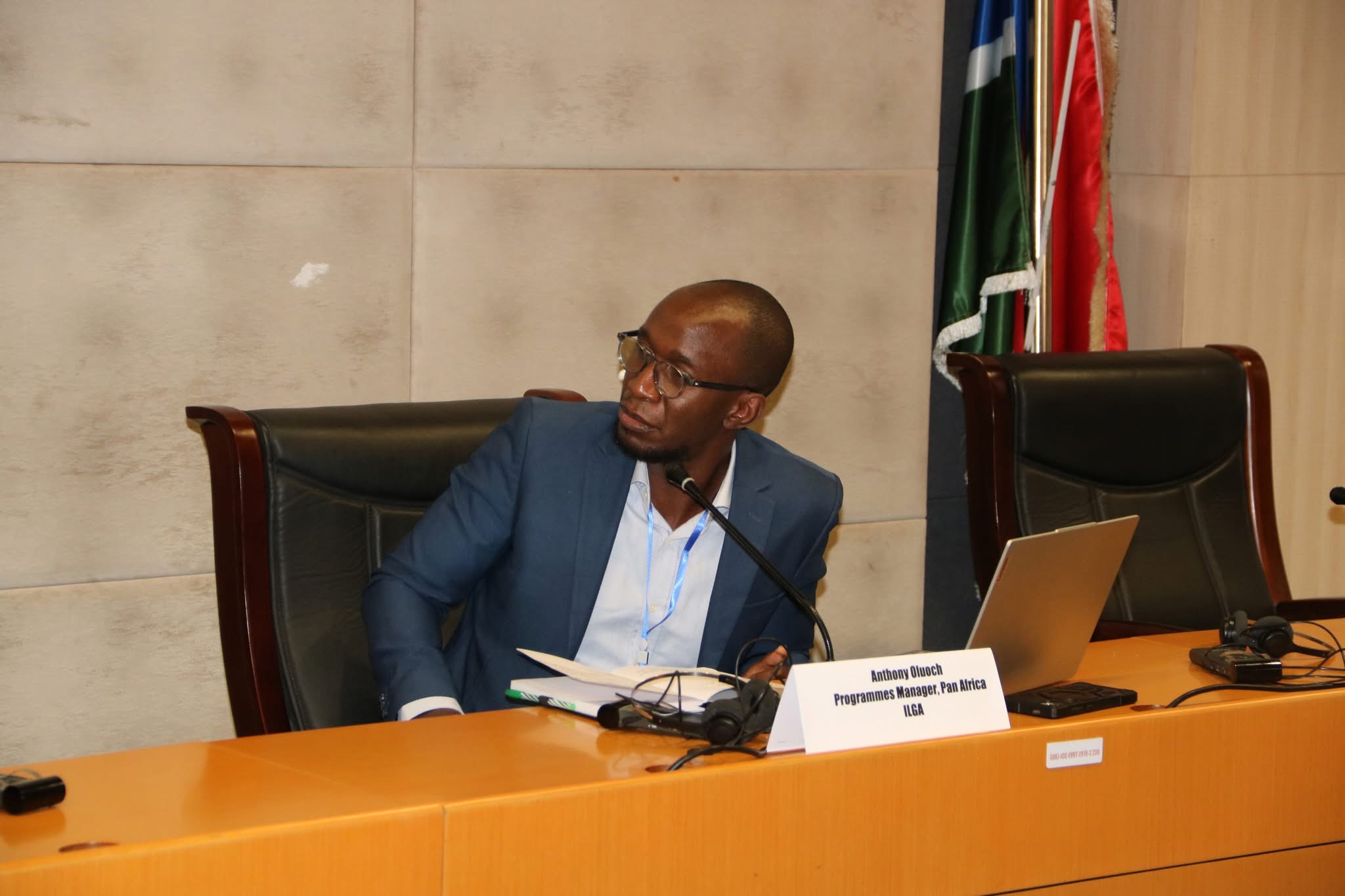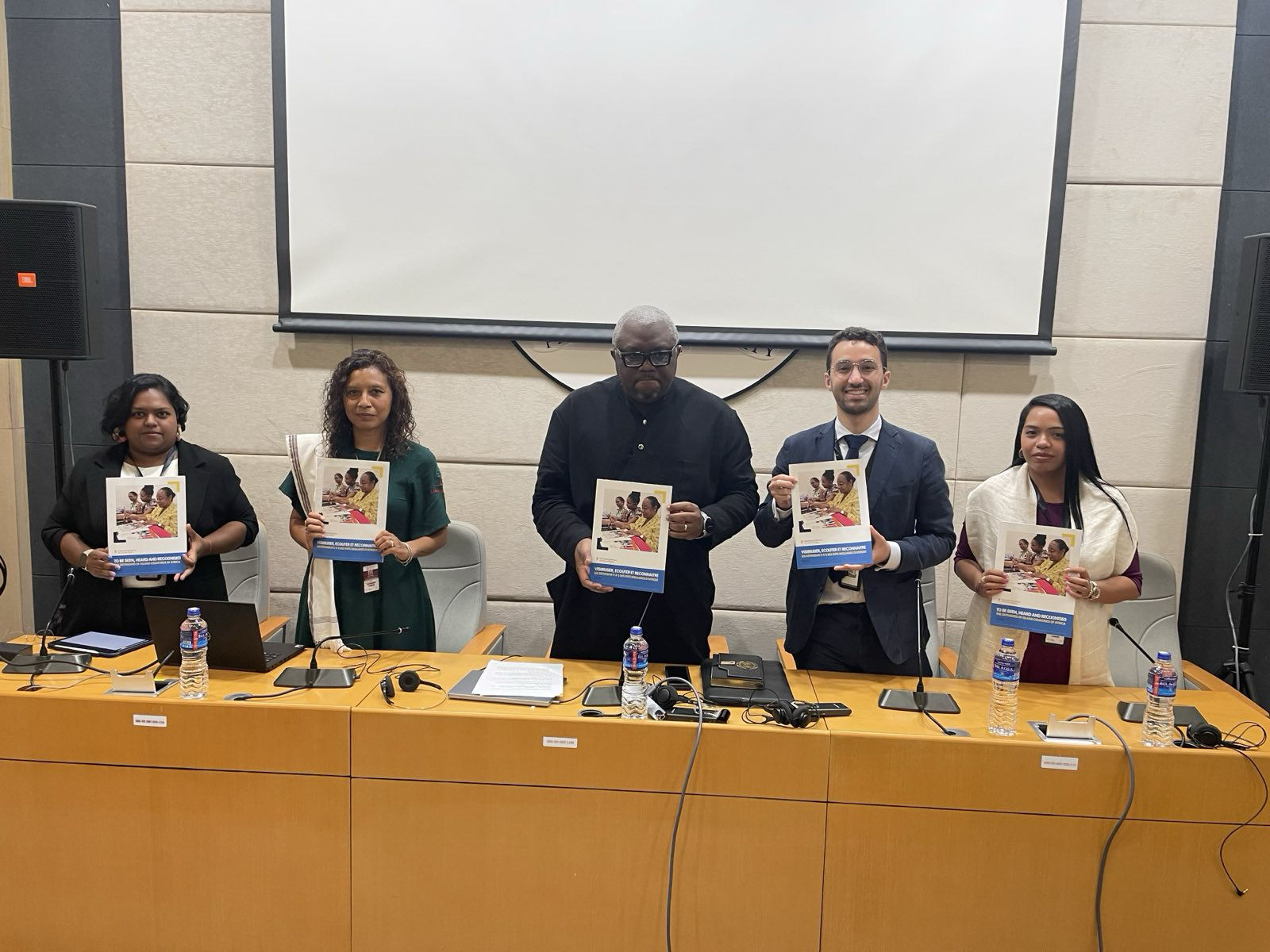
Egypt: Reform unjust vice laws, guarantee open civic space
During Egypt's UPR adoption at HRC59, Nora Noralla delivered a joint statement on behalf of ISHR, Cairo 52 and Middle East Democracy Center. Watch and read the full statement below.
Photo: ACDHRS

During the session of the NGO Forum preceding the 83rd Ordinary Session of the African Commission on Human and Peoples’ Rights (ACHPR), a panel focused on the enduring impact of colonial-era laws on vulnerable populations across Africa.
The panel brought together human rights defenders and advocates to examine how outdated legal frameworks continue to marginalise communities, particularly LGBTQ+ individuals and sex workers, and to discuss pathways toward decriminalisation and justice.
During the panel that took place on 28 April 2025, Robert Akoto Amoafo, Advocacy Manager at Pan Africa ILGA, opened the session by highlighting the historical context in which African legal systems were established—not to serve justice, but to assert control over colonised populations. He emphasised that these systems were not designed with the protection of African peoples in mind, but rather to enforce colonial dominance.
Anthony Oluoch, Programme Manager at Pan Africa ILGA, elaborated on this point, noting that the legal systems inherited from colonial powers were never intended to uphold the rights of African citizens.
The existing legal frameworks have created significant barriers for human rights defenders advocating for marginalised groups, particularly LGBTQ+ individuals, who have been systematically left behind in the pursuit of justice and equality.Anthony Oluoch, Programme Manager at Pan Africa ILGA
Joining virtually, Thato Thinyane, Project Coordinator at the Peoples’ Matrix in Lesotho, discussed how colonial laws were crafted to criminalise African norms that conflicted with European moral codes. She highlighted the persistence of police violence and discriminatory arrests rooted in these outdated laws. Thinyane argued that any sincere conversation about reparations must include decriminalisation, framing it not merely as a legal reform but as a necessary act of reparation for historical injustices.
The African Commission must prioritise the repeal of dehumanising and unjust laws that continue to oppress African communities.Thato Thinyane, Project Coordinator at the Peoples' Matrix in Lesotho
Geoffrey Ogwaro, Advocacy Manager at the Uganda Key Population Consortium, provided a contemporary example by referencing Uganda’s Penal Code, introduced by the British in 1950, which criminalises LGBTQ+ identities. He noted that this colonial-era law continues to influence current legislation, as seen in recent efforts to further criminalise homosexuality in Uganda. Ogwaro also addressed the criminalisation of sex work in several African countries, contrasting this with nations that have taken steps to regulate the sector to protect the rights of sex workers.
Kevin Mwachiro, a Kenyan journalist, writer, and podcaster, highlighted the ongoing presence of colonial laws in Kenya, such as the Witchcraft Act, and the criminalisation of non-procreative sexual activities. He also pointed out the criminalisation of suicide, advocating instead for mental health support for individuals in crisis. Mwachiro called for a more inclusive and diverse Africa that respects and protects individuals regardless of their sexual orientation or lifestyle.
The panelists collectively emphasised the urgent need to dismantle colonial legal legacies that continue to marginalise vulnerable populations in Africa. They called on the African Commission on Human and Peoples’ Rights to take concrete steps toward decriminalisation, recognising it as both a legal necessity and a form of reparation for historical injustices. The panel underscored that achieving a more just and equitable Africa requires confronting and reforming the colonial laws that still shape the continent’s legal landscape.

During Egypt's UPR adoption at HRC59, Nora Noralla delivered a joint statement on behalf of ISHR, Cairo 52 and Middle East Democracy Center. Watch and read the full statement below.

The 59th session of the UN Human Rights Council (16 June to 9 July 2025) will consider issues including civil society space, climate change, sexual orientation and gender identity, violence and discrimination against women and girls, poverty, peaceful assembly and association, and freedom of expression, among others. It will also present an opportunity to address grave human rights situations including in Afghanistan, Belarus, China, Eritrea, Israel and oPt, Sudan, Syria and Venezuela, among many others. Here’s an overview of some of the key issues on the agenda.

On 4 May 2025, on the sidelines of the 83rd Ordinary Session of the African Commission on Human and Peoples’ Rights (ACHPR) in Banjul, ISHR officially launched its new report on the situation of human rights defenders in the African island states: Cape Verde, Comoros, Madagascar, Mauritius, São Tomé and Príncipe, and Seychelles.